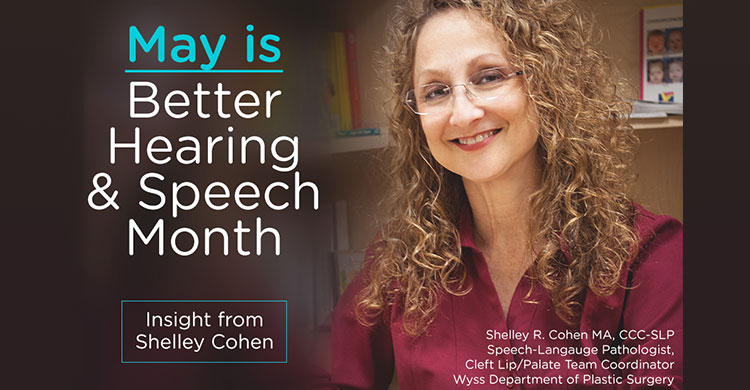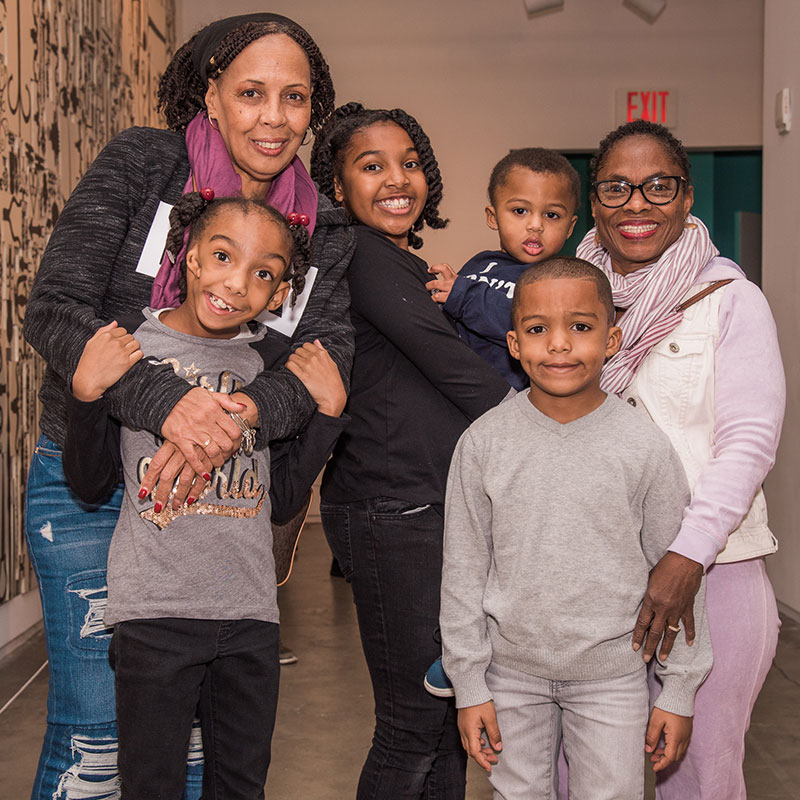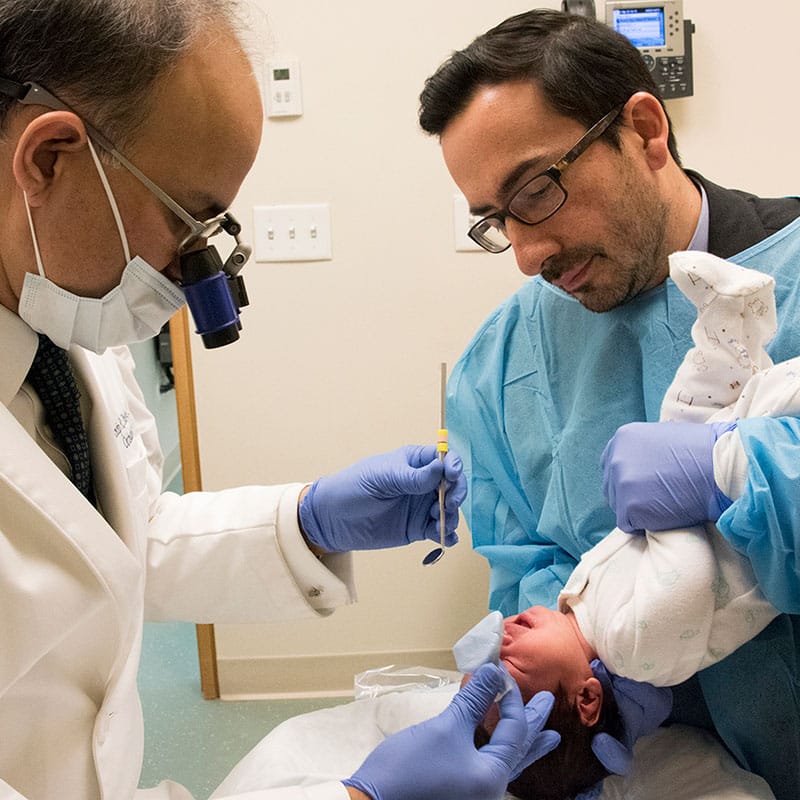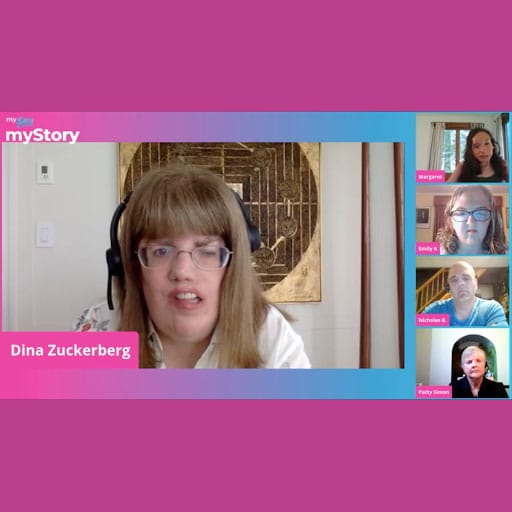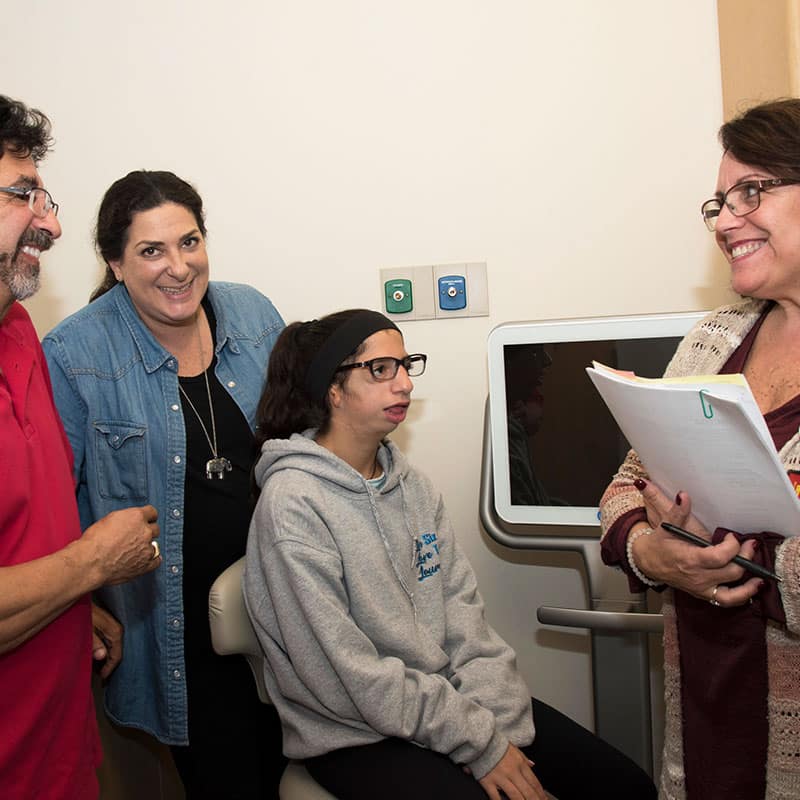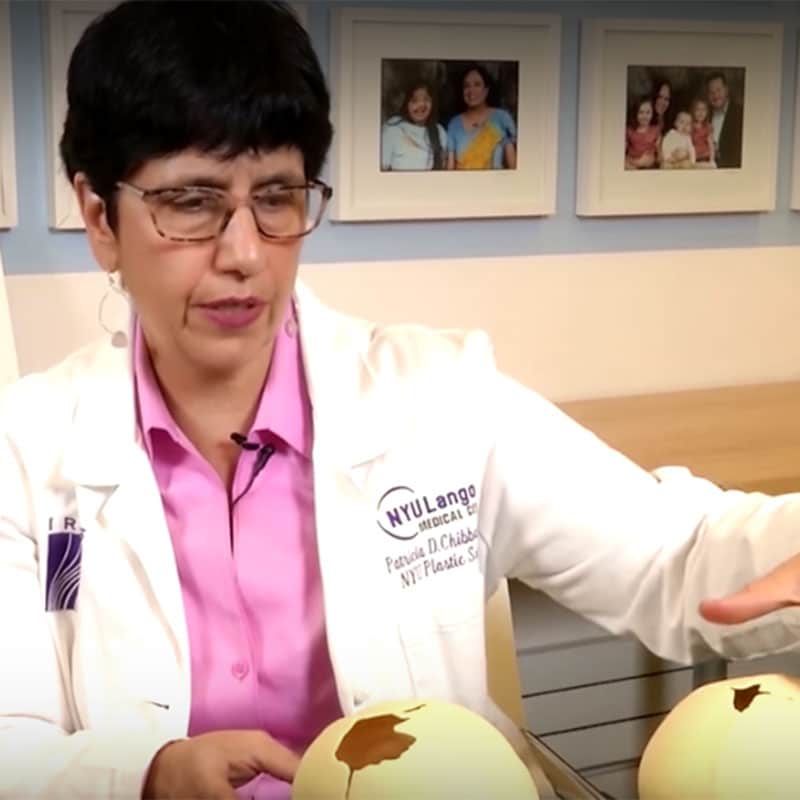My name is Shelley Cohen, I am the cleft and craniofacial teams’ speech-language pathologist (SLP) and the cleft team and ear, nose and throat clinic coordinator. May is Better Hearing and Speech Month. It’s a great time to remind you about the importance of an annual hearing test with a visit to a pediatric Otorhinolaryngologist or Ear, Nose and Throat (ENT) specialist. Fluid buildup in the middle ear is common in children with cleft palate and other craniofacial diagnoses. Fluid can cause ear infections and slow learning so it’s important that your child have annual follow up. Please contact the office of our team ENT Dr. Scott Rickert 646-501-7890 for an appointment. Or you can see a local provider for routine matters such as hearing tests and ear tubes should they be needed.
Children with cleft lip and palate and other craniofacial diagnoses can have speech problems related to how the muscles in the soft palate do or not work, the relationship of the top jaw to the bottom jaw, in front or behind and to tooth position.
It’s important that you network the local/school provider to the team SLP to ensure that the local provider is supporting the team’s goals. Most SLP’s have not had any required course work in graduate school in craniofacial anomalies and I am here to help by phone, email and in person consultations.
Some states like New York offer Early Intervention (0-3 years) home therapy to all children with a diagnosis of cleft palate. When a child turns 3 years of age the services are then provided by your states equivalent of the Committee of Pre-School Special Education (CPSE). This does not mean your child is in Special Education it simply means that they provide the speech therapy. Please don’t feel that you have to sign any documents regarding therapy goals and frequency of group or individual services without first reviewing them with the Newman Psychosocial Team. We are here to help if you let us.
There is no certified specialty for SLP’s providing speech therapy to children with cleft lip/palate and craniofacial anomalies and experienced SLP’s are hard to come by. However, there are many experienced SLP’s that understand articulation and resonance (air flow problems) associated with craniofacial anomalies. Our goal is to keep services in the school setting when appropriate.
Very often families ask about speech exercises such as sucking through a straw, puffing cheeks, blowing bubbles and biting on chewy tubes to help build speech muscles. Unfortunately it’s not possible to build speech muscles like you can build your bicep muscles in your arms. When a speech articulation problem exists you have to work on speech articulation habits. If there is a true muscle problem such as a short or poorly working palate then surgical intervention is required. Speech therapy cannot fix muscles.
A great book for families is Children with Cleft Lip and Palate; A Parents’ Guide to Early Speech-Language Development and Treatment by Hardin-Jones, Chapman, Scherer and a must have book for SLP’s is Therapy Techniques for Cleft Palate Speech & Related Disorders by Karen Golding-Kushner.
Please feel free to contact me if you have any questions or concerns 212-263-5203, cohens08@nyumc.org.
Take care,
Shelley

